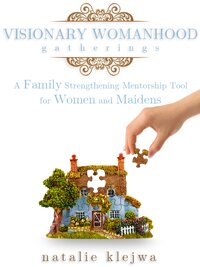 By Contributing Writer, Jeannette Paulson
By Contributing Writer, Jeannette Paulson
I first heard of The Undercover Revolution: How Fiction Changed Britain by Iain H. Murray from John Piper. Murray asserts that a particular kind of fiction, more than anything else, eroded evangelical morality in late Victorian and Edwardian England.
Because the authors discussed in the book are praised as great men, and their works read widely in high schools and the university, we should beware of them. They are examples of the power of a bad story.
Although Robert Louis Stevenson was raised in a Christian home with a Christian nurse who taught him the Bible, the Shorter Catechism and hymns, at 17 he left for Edinburgh University where he fell among bad companions. Later he joined a prominent literary club called the Saville Club. Though Robert Louis Stevenson seems a harmless storyteller for boys, his collected letters tell of a deep distain for the faith of his fathers. He wrote to one friend: “It was really pathetic to hear my father praying pointedly for me today at family worship, and to think the poor man’s supplications were addressed to nothing better able to hear and answer than the chandelier.”
Thomas Hardy was said by some to be England’s most eminent figure in literature. Though raised in the church, he was drawn into the same godless literary Saville Club that Robert Louis Stevenson had joined. He began a new style of writing novels the aim of which was ‘realism.’ This term was a cover for his hostility to God and Christian morality. Rather than “moralizing” Hardy would “tell it like it is concerning the relationship between men and women, their happy meetings, dissatisfied lives and sad partings.” Indeed, this was Hardy’s life — a string of women which he wooed and dropped when he saw redder lips and higher heels. When he finally married Emma, a true saint, he was full of self-pity at being trapped in a “loveless” marriage. True love, he believed, and implied in his novels, was to be found outside of marriage. This lie is found in Tess of the Derbervilles.
H.G. Wells and George Bernard Shaw are two more popular novelists of this period who undermined evangelical Christianity. H.G Wells’ work was immoral (“I object to marriages as a general thing.”), man-centered, and deliberately insulting to Christians. His better world would come about as a ‘collective effort’ by man. George Bernard Shaw embraced socialism calling Christianity “largely a spent force.” Iain H. Murray says Shaw was never happier than when he was changing the meaning of such words as ‘wicked’, ‘marriage’, ‘life’, and ‘death’.
When the world calls Stevenson, Hardy, Wells, and Shaw “literary greats,” let us be Bereans. The call is to test the spirits and guard our hearts and homes from the devil who comes as an angel of skillful words.




Recent Comments
Thanks for sharing some specific examples here to help readers sort through the issue...
Wemmick Girl on To Correct or Not to Correct…Your Husband: A Pendulum Post
Good thoughts on an important subject, Natalie. I'm glad you also included this quote...
6 arrows on To Correct or Not to Correct…Your Husband: A Pendulum Post
There are two "teachings" in the Christian woman blogosphere that rub me the wrong wa...
livinginblurredlines on To Correct or Not to Correct…Your Husband: A Pendulum Post